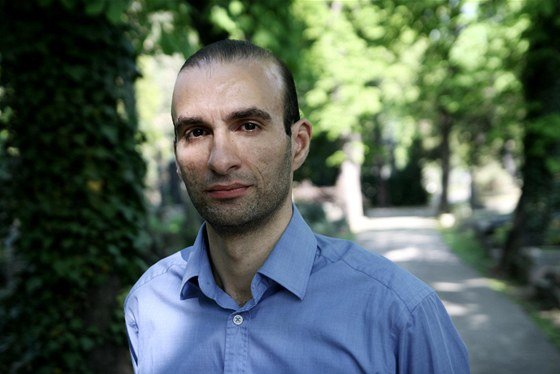A united Europe will benefit Iran: expert
“Iran is embedded in Europe and Europe is in Iran,” Arshin Adib Moghaddam says

TEHRAN – Chair of the Centre for Iranian Studies at the London Middle East Institute refutes the idea by certain academics or mid-ranking officials in Iran that Brexit will favor Iran, saying, “Iran should be interested in a united Europe as a major factor in a multipolar global system.”
“Indeed, I deem the EU, Iran’s most pivotal partner in the international system,” Arshin Adib Moghaddam tells the Tehran Times.
Following is the text of the interview:
Q: What will be the effects of Brexit on London’s relations with other European countries?
A: The United Kingdom was always a half-hearted member of the European project which is primarily driven by Germany and to a lesser extent France. Britain never really developed a sober historical consciousness and a rather more balanced attitude towards the country’s imperial past. There is still a lot of “psychonationalist” nostalgia for the “white”, Victorian olden days. But the reality is that Britain is a multicultural society which can only strive within a global framework, of which the EU is an important part. Embedded in Europe, Britain would have had the opportunity to transcend some of the residues of its divisive past. With the pro-Brexit vote there have emerged centrifugal forces that threaten to rip apart the idea of a united kingdom. Nationalism begets nationalism, which is why the Scots and the Northern Irish have protested against the vote. It is a politically, socially and economically precarious situation that the ruling elites find themselves in. The European Union is a force for good in world politics. The United Kingdom will find itself on the wrong side of history if it separates from the EU.
Q: What will be the consequences of the exit on Britain’s ties with Middle East countries?
A: If Brexit goes ahead and if Britain truly separates from the EU, the country will be less important in West Asia and North Africa. The foreign policy of London would be seriously constrained, because the EU would not feel compelled to coordinate its international relations with the UK which would stand alone, or as an appendage to the United States. Without the EU, the UK will be less independent because it is less influential as a global actor. This will narrow down the options in terms of foreign policy manoeuvrability, in particular in hot spots such as Asia.
“Iran needs Europe to be as strong as possible as a counterweight to Russia, China and the United States,” says Professor Arshin Adib-Moghaddam from the School of Oriental and African Studies in London.
Q: Will Brexit also affect Britain’s relationship with Iran? And what is your view of this argument by some inside Iran who say Brexit would favor Tehran?
A: Iran should be interested in a united Europe as a major factor in a multipolar global system. I disagree with some of the opinions in Iran which view Brexit as a blessing. Iran needs Europe to be as strong as possible as a counterweight to Russia, China and the United States. The EU is not a military union, it is in essence a peaceful supra-national institution that is vital to Iran in terms of security, economy and global strategy. Indeed, I deem the EU, Iran’s most pivotal partner in the international system. As we saw: it was EU countries that were quickest to remove the sanctions after the JCPOA. As I have said before: Iran is embedded in Europe and Europe is in Iran. There is a cultural dialectic between both that is dense and continuously fruitful even in times of crisis. In many ways, Britain merely hobbled along in the first place. The real pacemaker of Iranian-European relations is Germany.
Q: How Brexit will influence the European Union’s relations with Iran?
A: If Iran continues and extends the path of diplomatic reconciliation, I see the EU as the country’s biggest asset in world politics for the reasons set out above. The EU is interested in a close dialogue with Iran, if the language of diplomacy prevails. I don’t expect radical changes in the EU’s behaviour towards Iran after Brexit. As indicated, Britain was one foot in the EU and one foot out. After Brexit it will be the opposite (i.e. more or less the same). The real motor of the EU is Germany and as a trading nation, Berlin will always be interested in closer relations with a geopolitically blessed country such as Iran.
